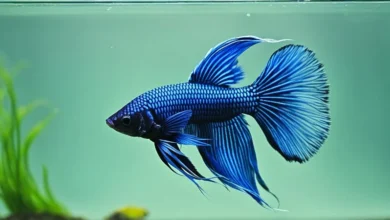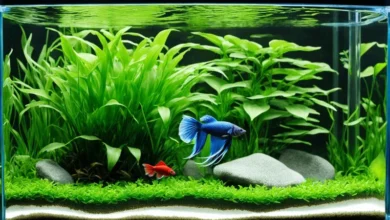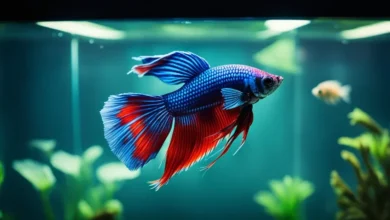
Are you a proud owner of a betta fish? These magnificent creatures, also known as Siamese fighting fish, are sought-after pets for their stunning colors and unique personalities. While bettas are known for their hardiness, it is still essential to ensure that they are well taken care of to ensure their optimal health and longevity.
To help you in your journey as a betta owner, we have prepared a comprehensive Betta Health Checklist. This checklist will serve as your guide to ensure that you are providing the best possible care for your beloved fish. From water quality to feeding schedules, we’ve got you covered on all aspects of betta care. So, let’s dive into the checklist and ensure that your betta thrives!
Betta Health Checklist: Betta Fish Supplies
Before bringing home a betta fish, it’s important to have all the necessary supplies ready. These supplies will ensure a healthy and comfortable environment for your betta fish.
- Aquarium: An aquarium with a minimum capacity of 5 gallons is recommended to provide enough space for your betta fish to swim and thrive.
- Filter: A filter is essential for maintaining clean and healthy water. Choose a filter that is suitable for the size of your aquarium.
- Heater: Betta fish are tropical fish and require a stable water temperature between 75-80 degrees Fahrenheit. A heater will help maintain the desired temperature.
- Decorations: Add decorations to your aquarium to provide hiding spots and stimulation for your betta fish. Ensure the decorations are safe and do not have sharp edges.
- Water Conditioner: Use a water conditioner to remove chlorine and detoxify heavy metals from tap water, making it safe for your betta fish.
- Water Quality Test Strips: Regularly test the water parameters such as pH, ammonia, nitrite, and nitrate levels to ensure a healthy environment for your betta fish.
- Betta Fish Food: Provide a well-balanced diet for your betta fish. Choose high-quality betta fish pellets or flakes that are specifically formulated for their nutritional needs.
- LED Light: An LED light can enhance the visual appeal of your aquarium and provide adequate lighting for your betta fish and live aquarium plants.
- Aquarium Plants: Live aquarium plants not only add beauty to your tank but also provide natural hiding places and contribute to water oxygenation.
Having these betta fish supplies ready will ensure that your fish can thrive in a suitable and comfortable habitat.
Betta Fish Aquarium Size and Setup
A proper betta fish aquarium should have a minimum size of 5 gallons to provide enough space for the fish to swim and thrive. Betta fish are known for their beautiful fins and active nature, so a larger tank will give them the freedom to explore and display their natural behaviors.
When setting up the betta fish tank, it’s important to consider the suitable decorations and plants that mimic their natural habitat. This not only enhances the aesthetic appeal but also provides hiding spots and resting places for the fish. However, it’s crucial to avoid decorations with sharp edges or items that can alter the pH of the water, as they can harm the delicate fins of the betta fish and compromise their health.
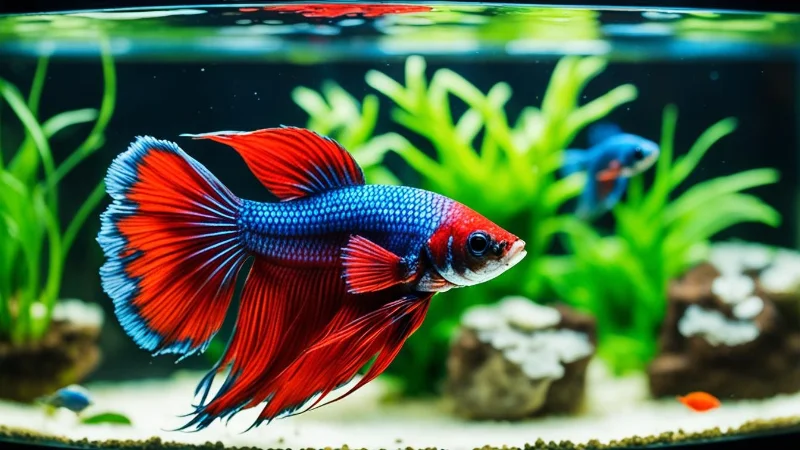
Before adding a betta fish to the newly set up aquarium, it is recommended to let the tank run for at least a week to establish a stable environment. This allows the filtration system to properly function and maintain the optimal water quality for the fish. It also gives the aquarium plants time to acclimate to the water conditions, ensuring they can provide the desired benefits to the betta fish.
Betta Fish Water Quality
Maintaining proper water quality is crucial for the health of your betta fish. A clean and well-balanced environment will promote their overall well-being and prevent common health issues. By following these guidelines, you can ensure optimal water quality for your betta fish.
Water Temperature
The water temperature in your betta fish aquarium should be between 75-80 degrees Fahrenheit. This range mimics their natural habitat and allows them to thrive. Use a reliable heater with enough power to maintain the desired temperature consistently.
Water Parameters
Regularly testing the water parameters is essential to monitor the quality of the aquarium. Test the pH level, nitrite, and nitrate levels using reliable water test kits. Ideally, the pH level should be between 6.8 and 7.4, with ammonia and nitrite levels reading zero. Nitrate levels should be kept below 20 ppm. Adjust these levels as needed to ensure a healthy environment for your betta fish.
Water Conditioner
Using a water conditioner is crucial to remove chlorine and detoxify heavy metals from tap water. These substances can be harmful to betta fish and may lead to health issues if not treated effectively. Choose a high-quality water conditioner and follow the instructions for proper dosage.
Beneficial Bacteria
Establishing a cycle of beneficial bacteria is essential for maintaining water quality. Cycling the water before adding betta fish helps to establish a stable ecosystem within the aquarium. Beneficial bacteria convert harmful ammonia and nitrite into less toxic substances, ensuring a healthy environment for your fish.
Betta Fish Filters
Choosing the right filter for your betta fish tank is essential to maintain a healthy and clean environment for your fish. When selecting a filter, consider the size of your aquarium, the output rate of the filter, and its compatibility with other tank mates and plants.
There are different types of filters available for betta fish tanks, such as mechanical, chemical, and biological filters. Mechanical filters remove debris and waste particles from the water, while chemical filters help to remove toxins and maintain water quality. Biological filters harbor beneficial bacteria that break down harmful substances.
Regular cleaning and maintenance of the filter media are important to ensure its effectiveness in removing waste products and preserving beneficial bacteria. Cleaning the filter media should be done according to the manufacturer’s instructions to prevent damaging the bacteria colonies.
Remember, a healthy and well-functioning filter plays a crucial role in removing waste products, maintaining water quality, and providing a clean and safe environment for your betta fish to thrive.
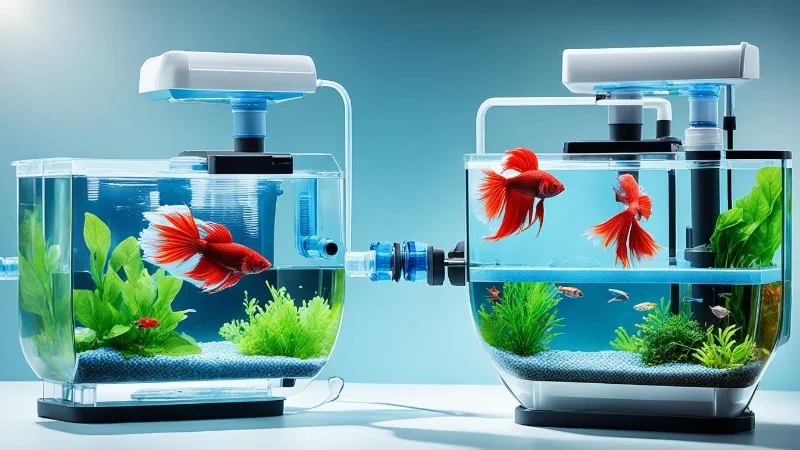
Conclusion
Proper care and maintenance are crucial for the health and well-being of your betta fish. By following the daily, weekly, and monthly care tasks outlined in this betta health checklist, you can create a suitable habitat that promotes optimal fish health. It is important to monitor the water quality regularly, provide the necessary supplies, and maintain a clean environment.
Adhering to the checklist will help ensure that your betta fish thrives in a well-maintained aquarium. Regularly testing the water parameters such as pH, nitrite, and nitrate levels, along with using a water conditioner to eliminate chlorine and heavy metals, will contribute to a stable and healthy environment for your fish. Remember to maintain the water temperature between 75-80 degrees Fahrenheit using a reliable heater.
Additionally, choosing a suitable filter for your betta fish tank is essential. The filter should be compatible with your tank size and other tank mates while effectively removing waste products and preserving beneficial bacteria. Regular cleaning and maintenance of the filter media will ensure its efficiency and effectiveness.
By implementing these care guidelines and providing a comfortable and clean living space for your betta fish, you can ensure their well-being and enjoy the beauty and companionship they bring to your home. Keep in mind that the information provided in this article is based on reliable sources to assist you in successfully caring for your betta fish.
